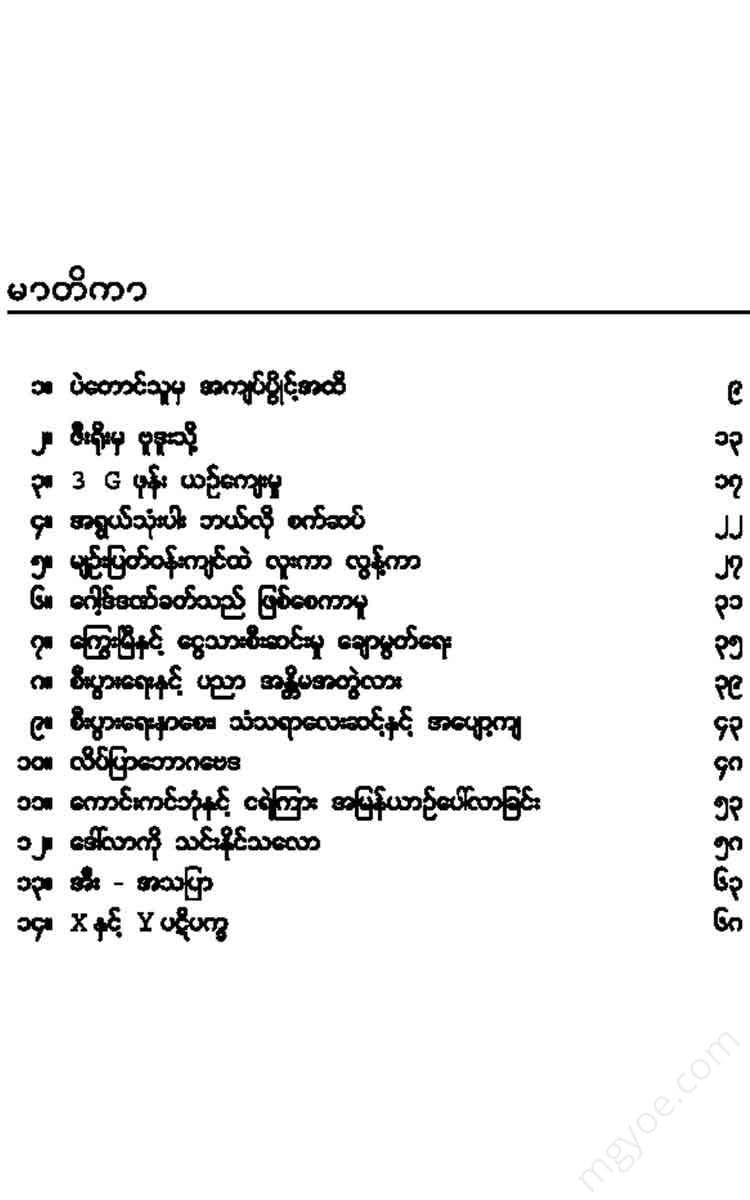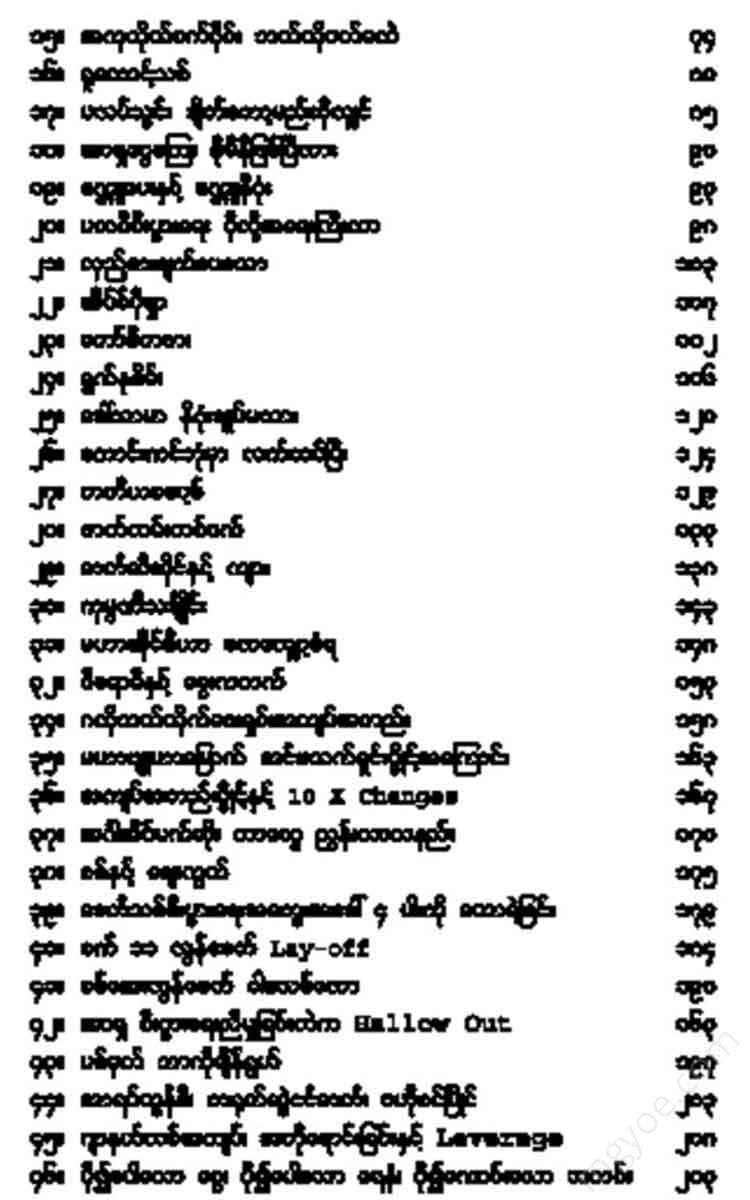Other Websites
Maung Kyi - Idea Economy in the Era of Globalization
Maung Kyi - Idea Economy in the Era of Globalization
Couldn't load pickup availability
Five orientations
The author gave a talk on modern economic perspectives at Sagaing Cooperative College, focusing on the excerpt that says that trade is not the engine driving globalization. Technology is the main engine driving globalization. The author was joined by retired professor Khin Maung Than (Psychology).
After briefly comparing the relative strengths of trade and technology, the author explains the nature of the phenomenal development of technology and then goes on to explain five trends in technological progress. These are (1) computerization, (2) innovation in telecommunications, (3) miniaturization, (4) compression, and (5) digitization.
Three democratic tendencies
As technology develops along these five trends, three very important effects occur: (1) the democratization of technology, (2) the democratization of finance, and (3) the democratization of information.
The democratization of technology refers to the fact that everyone has access to technology. For example, cell phones are now available everywhere, in both urban and rural areas. Millions of people around the world are connected to each other. Information, knowledge, money, family photos, music, and television programs can be easily exchanged. In other words, being well connected is a sign of democracy.
The democratization of finance is reflected in the collapse of the monopoly of the financial world by the big banks.
In the financial world, it's not just banks that lend money. You can also borrow money from other non-bank institutions. Everything can be converted into collateral (shares, bonds, commercial papers, etc.). It's called securitization.
Changing the foundations of life
The reason for the democratization of information is clear. Many people have access to information in a common way. With about 500 channels on satellite television, any information or knowledge can be easily obtained, and with the replacement of videos and DVDs, information can be carried with you wherever you go.
To elaborate on the three aspects of democracy mentioned above, these three aspects have led to major changes in (1) how we communicate, (2) how we invest, and (3) how we gather information. These are major changes in the very basis of life.
This has changed the very nature of globalization. In the Cold War era, weight was the main issue. How big is your bomb? How big is your missile? In the era of globalization, how fast is your computer? Speed is the key.
Inflection point
Business is no longer understood in a conventional way. The era of conventional thinking is over. In business, success is the exception, and crisis is the norm. Business success is about overcoming and resolving crises.
Thus, the author explains the crisis point. He explains the strategic inflection point. In explaining this, he explains it in relation to a practical situation.
When doing business, you need to pay special attention to five areas. They are also called forces. These five forces are (1) your competitors, their strength, intelligence, and pace; (2) your customers, their strength, intelligence, and pace; (3) your suppliers, their strength, intelligence, and pace; and (4) potential competitors that may not exist now but may appear in the future.
Their strength, intelligence, and (5) changes in distribution channels. The tragic events that occurred in New York and Washington on September 11th are called exogenous shocks, and it is necessary to take these shocks into account, he explained.
Bean farmer
A strategic inflection point is a point where a change in one of the above forces causes a change in the other forces as well. It is similar to the prepositional phrase in the poem.
For example, the author tells a story he heard. Bean farmers do not like the pre-sale of beans like last year. They want to sell at market prices when the beans are ripe. This is a change on the part of suppliers for oil mill owners, so how will their competitors act and how will their customers react to this change? Are there still people among the suppliers who want to sell at pre-sale and beans? Is it possible that the distribution of beans and oil distribution channels will change? Will new competitors appear? If so, how will they act? He explains that we will have to calculate everything in relation to this.
When economists have to constantly calculate the five forces and unexpected shocks, they can become quite confused. This is because only those who can calculate this and that are able to solve crisis points are able to do so. Therefore, it was explained that there is a theoretical proposition that only paranoia can survive at the crisis point.
Market Journal, No. 248.





